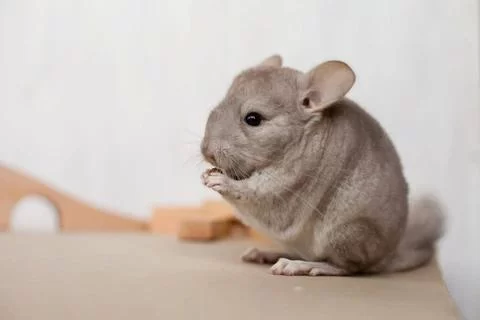- Understanding Your Pet Chinchilla
- Creating the Ideal Habitat for Your Chinchilla
- Nutrition and Diet Considerations
- Grooming and Health Maintenance
- Common Behavioral Aspects and Social Needs
- When to Consult Professionals
1. Understanding Your Pet Chinchilla
Caring for a pet chinchilla begins with understanding their unique nature. These small, nocturnal rodents originate from the Andes Mountains, which means they are adapted to cool, dry environments. Their dense fur, which is among the softest in the animal kingdom, requires specific care to maintain health and comfort. Pet chinchillas are curious and active, thriving on routine and gentle handling.
Temperament and Activity
Chinchillas are playful but can be shy at first. Patience is essential as they gradually build trust with their owners. They are most active during dusk and dawn, so planning interaction times around their natural rhythms helps in bonding.
Longevity and Commitment
These pets live between 10 to 20 years, so caring for a chinchilla is a long-term commitment. Providing consistent care and environment is crucial to their wellbeing.
2. Creating the Ideal Habitat for Your Chinchilla
A suitable habitat replicates the chinchilla’s natural environment and ensures their safety and happiness.
Cage Requirements
Chinchillas need a spacious, multi-level cage with solid flooring to prevent foot injuries. Wire mesh cages with secure locks work well, allowing ventilation while keeping your pet safe.
Temperature and Humidity Control
Because of their thick fur, chinchillas are sensitive to heat and humidity. Maintaining a cool environment between 60–70°F (15–21°C) with low humidity is essential to prevent heatstroke.
Environmental Enrichment
Include chew toys, tunnels, and hiding spots to keep your chinchilla mentally stimulated. This enrichment reduces stress and destructive behavior.
3. Nutrition and Diet Considerations
A balanced diet is fundamental in chinchilla care. Their digestive systems are sensitive, so feeding them the right food prevents illness and promotes longevity.
Pellets and Hay
High-quality chinchilla pellets are designed to meet their dietary needs. Alongside pellets, unlimited access to fresh timothy hay is vital for digestive health and dental wear.
Fresh Water
Provide fresh, clean water daily using a water bottle designed to prevent contamination.
Avoiding Harmful Foods
Never feed sugary treats, nuts, or vegetables high in moisture as these can upset their digestion. Instead, occasional treats like rose hips or dried herbs are safer choices.
4. Grooming and Health Maintenance
Unlike many pets, chinchillas cannot bathe in water due to their dense fur, which retains moisture and can cause fungus. Instead, they require dust baths to keep their coats clean and healthy.
Dust Baths
Provide a dust bath 2-3 times weekly using special chinchilla dust. This helps remove oils and dirt while maintaining fur quality.
Monitoring Health
Watch for signs of illness such as changes in appetite, lethargy, or fur loss. Early detection is key, so regular observation is important.
Veterinary Care
Routine veterinary checkups help catch issues early. Hidden Brook Veterinary offers specialized care tailored to exotic pets like chinchillas, ensuring your pet stays in optimal health.
5. Common Behavioral Aspects and Social Needs
Chinchillas can be social animals but require proper handling and socialization.
Handling Tips
Gently support their body and avoid sudden movements to prevent stress or injury. Gradually increase interaction time to build trust.
Companionship
Some chinchillas thrive in pairs or small groups, but introducing new pets should be done carefully to avoid territorial disputes.
6. When to Consult Professionals
Despite best care, some health or behavioral issues require professional attention. If you notice persistent signs of distress, abnormal behavior, or physical symptoms, consult an exotic pet veterinarian promptly.
For customized advice on chinchilla care, quality products, or veterinary services, visit Hidden Brook Veterinary. Their expertise can guide you in providing the best life for your pet chinchilla.












